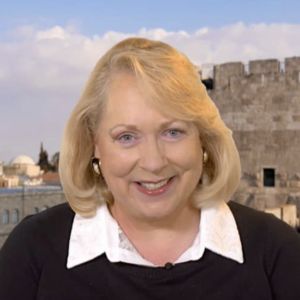A couple of days ago, James Kitfield published in Politico an interview with the outgoing Joint Chiefs of Staff chairman, General Martin Dempsey. The title sums it up: Martin Dempsey’s World Is Falling Apart. Never have I read such a pathetic – and chilling – document.
After all, the United States is – still – the biggest military and strategic power in the world. It possesses the biggest army, the most advanced weapons, and the biggest and most advanced armament industry. In addition, it commands the largest network of alliances and security pacts, from NATO, the American-European alliance and integrated military organization, to many bilateral pacts in the Middle East, Africa, South Asia, East Asia, Oceania, and Latin America.
But the image that General Dempsey is conjuring up is one of powerlessness and doom. According to him, American might is compromised by declining resources on the one hand, and by a growing unclarity about goals and strategies on the other. Regarding Syria, for instance, he remarks: It’s inconceivable to me that anyone would agree to allow Assad to continue governing Syria after what he’s done. In fact, the Joint Chiefs of Staff provided the American elected officials with military options, but the decision was made… not to select a military line of attack concerning the Assad regime and instead to let in the Russians, who seem interested, above all, in shoring up a regime that has essentially attacked the majority of its population.
No small words from a person in his position, with a lifelong experience in warfare of all kinds, from the quite conventional First Iraq War in 1991 to the much more complex and unconventional Second Iraq War in the mid-2000s. Dempsey warns that whatever the area and the battlefield, the American military is losing any sense of what deterrence means.
General Dempsey neither provides a more global vision nor more in-depth explanations. Clearly he has reached the limits of what he is allowed to say as JCS chairman. Or he is hindered, as many civilian leaders or observers are, by obsolete or inadequate ways of thinking. While politics, geopolitics and strategic constantly evolve and undergo change, even if they look still and stationary for long periods of time, decision-makers are usually trained to respond to a specific political, geopolitical or strategic environment. Unsurprisingly, most of them, even among the best, are getting confused when a different environment – a different stellar alignment – emerge.
Let me try to go a bit beyond what General Dempsey said, and to fill what he left empty. As the French say: « Qui ne risque rien, n’a rien » – nothing ventured, nothing gained. Let me venture some new ideas. Even if they sound a bit provocative.
Idea #1: Forget about ISIS and Iran. Indeed, both are lethally dangerous. But the overriding strategic fact today is a Russian diplomatic and military blitzkrieg, from Ukraine to the Middle East, is unsettling the post-1991 and even the post-1945 world order. By comparison, Isis and Iran are minor issues.
Idea #2: The Soviet Union was not defeated in the Cold War. It merely retreated, with the intent to strike back. Russia, endowed as it is by a phenomenal land mass and a forbidding climate, is probably the only nation in the world that has constantly and successfully relied on such tactics. This was Marshall Mikhaïl Kutuzov’s plan against Napoleon in 1812, Lenin’s plan in front of Imperial Germany in 1918, and Stalin’s trap for Nazi Germany at Stalingrad, in 1942. When the Soviet Union got in serious trouble in the 1980’s, it quite naturally resorted to the same template, mutatis mutandis.
Idea #3: In order to understand how Russia retreated in 1991, we must first remember what kind of a superpower it was by the end of the Soviet era. There was the Empire’s core, home of the army and the Communist secular Church: the Soviet Union, comprising of Russia proper and fifteen more or less Russianized Soviet Republics. There were the Communist client-States in Eastern Europe (the Warsaw Pact), East Asia (Mongolia, Vietnam), Latin America (Cuba), and then the progressive regimes throughout the Third World, including many Arab and Islamic regimes. A third circle comprised of more independent allies, like India, or vassals, like Finland. And finally, there were the huge intelligence, disinformation and influence or soft power networks operating outside the Empire under the KGB guidance : some of them offshoots of the Communist International, some others intimately interlinked to the Western political, cultural and economic Establishment. This fourth circle, and especially the Western Establishment networks, was essential for the strength and even the survival of the Empire, since it provided with many goods that could not be produced in the Soviet Union or in the client-States, as well as constant updating in science and technology.
Idea #4: In the 1970s, the Soviets had entertained the hope that they could turn their extensive and multifaceted Empire into a viable world Empire: one trick was to decouple Western Europe from America and use it as a visualized economic partner – a larger Finland. In the 1980’s, it became apparent that the scheme would not work and that the Empire as a whole could not function any longer. Retreat was then the only option. Mikhail Gorbachev attempted to get rid of the Communist or progressive dependencies in order to keep a modernized and Westernized Soviet Union intact. Other elements in the Soviet leadership, including the KGB, focused on keeping the army and the world networks intact, even if the outer Empire and the Soviet Union were formally dismantled: their calculation was that a strong army and effective networks would eventually help the Empire to be restored and even extended under a new name and a new ideology. The second view prevailed after 1991 and has been the blueprint for Russian geopolitics ever since then.
Idea #5: Russia proper was restored as a nationalist-authoritarian State by the mid-1990’s under Boris Yeltsin, and as an effective one from 1999 on under Vladimir Putin. Most former non-Russian Soviet Republics – the “Near Abroad” – were reorganized along the same lines and remained under Russia’s sway. Those who attempted to achieve full independence — like Georgia in 2003, and Ukraine in 2004 and 2014 — were intimidated in one way or another. The extension of the EU and NATO to the former Eastern Europe and the former Soviet Baltic Republics, and NATO’s repeated interventions in the Balkans, in 2005 and 2009, were explicitly denounced as aggressions: a signal that Russia did not and would not relinquish its imperial designs over the area. Moreover, Russia gradually took the lead of a large anti-hegemonic coalition against America and the West, either through the Shanghai Conference Organization (SCO) or through multiple bilateral or multilateral accords. Last but not least, the former KGB-managed networks in the Western world were reactivated and expanded as antiglobalist, anticapitalist, anti-hegemonic, networks. It should be noted in this respect that Putin’s Russia entertains close ties with both the Western hard left, which sees it as the legitimate heir of the Soviet Union, and the Western hard right, which has been lured into seeing it as the ultimate stronghold of the White, Christian civilization.
Idea #6: The election of Barack Obama as president of the United States in 2008 and his reelection in 2012 boosted Russia’s strategy in a decisive manner. Obama and his oldest and closest political affiliates stem from the most liberal wing of the Democratic Party, a milieu where pro-Soviet networks of all kinds used to be quite active and quite influential. Be it for that reason or out of other concerns, or just out of abysmal naiveté, the Obama administration has simultaneously downsized American power and American commitment abroad, and condoned or passively countenanced the rise of Russian power. The turning point was the Syrian chemical weapons crisis in 2013, when the Obama administration briefly considered taking action against the Assad regime (with the support of France, a key ally) and then suddenly switched sides and agreed to a Russian mediation that, for all practical matters, amounted to salvaging Assad. From then on, Russian activism has dramatically increased — from Crimea to the Middle East — and so has American passivity.
Idea #7: The emergence in 2013 of the eerily, or theatrically, fanatical Islamist brotherhood known as the Islamic State in Iraq and the Levant (ISIL) or the Islamic State in Iraq and Syria (ISIS) and then just as the Islamic State (IS) was another boon for Russia. It instantly turned every other protagonist in the area, including Iran and the Assad regime, two Russian partners, into moderates. It paved the way to the Obama administration’s nuclear deal with Iran. Finally, it allowed Russia to engage militarily in the Middle East, for the first time, with the tacit consent of America so far. While the Islamic State is undoubtedly rooted in local radical Islam, it is noteworthy that its upper military echelon has been largely drawn from the Soviet-trained Saddam Hussein’s army.
Idea #8: As long as America does not react in a significant way to Russian activism, either in the Middle East or in Europe, a domino process is bound to take place, and bring more countries and areas under Russian dominance or influence. Think of Israel, America’s staunchest and most powerful ally in the Middle East, which has no choice, now that the Russians are stationing their air force just across their border, but to coordinate with them. Alternatively, the more the Russian-dominated sphere is growing, the higher the stakes will be for America to reassert itself.
Reprinted with author’s permission from michelgurfinkiel.com




